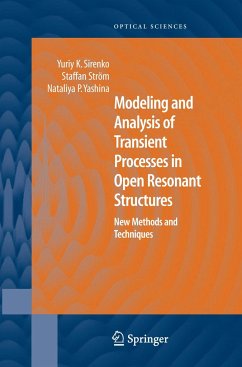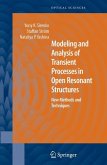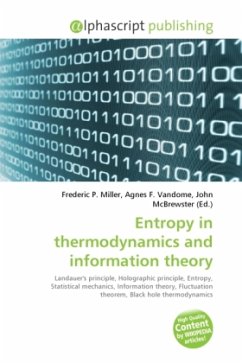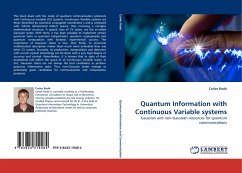The focus of electromagnetic theory is initial boundary value and boundary value problems for the Maxwell equations. Those are the initial models, from which, by applying mathematical methods, we should extract physical results. The modern computer-aided research process can be divided into several stages: qualitative mathematical analysis of the initial problem, the development of algorithms and implementation of the problem in software, problem-oriented computational - periments, and physical interpretation of the results. The success of the study depends in many aspects on whether suf?ciently high standards of investigation can be maintained at all these stages and whether there is an "intellectual core" in these investigations that enables us to gain new scienti?c knowledge [1]. As an exampleofasuccessfulimplementationofsuchanapproachthathassettledalo- standing con?ict between theory and experiment, we can cite the development of thetheoryofresonantwavescatteringinthefrequencydomain. Theseresultshave been reported (see [2-16] and the bibliographies contained in those references), andtheyhaveservedasabasisforthedevelopmentofanumberofessentiallynew functional units and devices in millimeter and submillimeter radio engineering, vacuum electronics, and solid-state electronics, optics, and spectroscopy. The modern theory of transient electromagnetic ?elds is still lacking achie- ments that may be compared with those existing in the frequency domain, neither by the profoundness of the study, nor by the intensity of the study of electrom- netic phenomena and, as a result, by their applications. However, the process of accumulation of potentialities for a breakthrough is a process still going on.
Bitte wählen Sie Ihr Anliegen aus.
Rechnungen
Retourenschein anfordern
Bestellstatus
Storno









